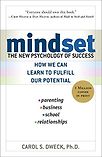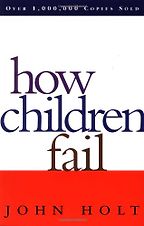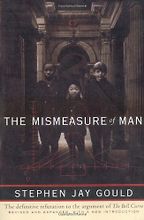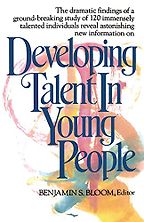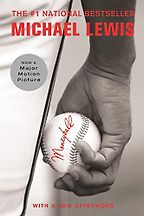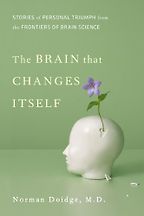Could you describe the key conclusions of the research you wrote about in your book Mindset?
In my work I’ve discovered that people can have different mindsets about their talents and abilities, and that these mindsets make a big difference. Some people believe that their talents and abilities are fixed traits – they have a certain amount and that’s that. We call this a fixed mindset. But other people have a growth mindset. They believe that their talents and abilities can be developed through hard work, perseverance and mentoring.
We’ve found that when people have a fixed mindset they often shy away from challenges. For them, deficiencies are permanent and so they are afraid to reveal them. People with fixed mindsets are also not as resilient in the face of setbacks because, again, they see setbacks as impugning their underlying abilities. Challenge-seeking and resilience are key factors in success. As a result, people with fixed mindsets often don’t achieve as much in the long run.
People with a growth mindset don’t necessarily believe everyone is the same or that anyone can be Einstein, but they understand that everyone can develop their abilities and that even Einstein wasn’t Einstein until he put in decades of dedicated labour. These people see a challenge as something that helps you learn, and a setback as something that ultimately helps develop your ability. For this reason, people with a growth mindset often accomplish more in the long term.
Your work is based on a “meaning systems” approach to psychology. Please explain the theoretical context for your research and how it catalysed your interest in motivation.
Each mindset creates a whole psychological world or a “meaning system” for people. It’s called a “meaning system” because mindsets change the meaning of what happens to us. First, as I’ve suggested, the mindsets change the meaning of challenges. In a fixed mindset, a challenge is threatening because it can reveal deficiencies. In a growth mindset, a challenge is an opportunity to get better at something. Next, mindsets change the meaning of effort. Those with a growth mindset think if you have natural ability you shouldn’t need that much effort. Their belief is that things should come easily to people if they’re really smart. But those with a growth mindset understand that even geniuses have to work hard for their great discoveries and that effort, well-applied, will increase your abilities over time. Finally, mindsets change the meaning of failure. In a fixed mindset a failure is the worst thing that could happen. It discredits your ability, it’s something to run from, something to hide and even, we find in our research, to lie about. But in a growth mindset failure, while not welcome, is something you learn from. It was fascinating for me to discover that these meaning systems could have such a profound impact on people’s motivation. Once I did, I was hooked.
Your conclusions were based on careful scientific study over many years. Can you please give us an outline of the research that went into your conclusions?
I’ve conducted 40 years of rigorous research, including experiments in the laboratory and large studies in field settings. I’ve done work that looks analytically at people’s reactions to challenges and setbacks, for example students grappling with difficult school transitions and even Israelis and Palestinians addressing their conflicts. I’ve published over a hundred papers; most of them are based on multiple studies. So, all told, my students, colleagues and I have conducted hundreds of studies with many thousands of people. We also have a longstanding line of research on how well-intentioned feedback – such as praise for intelligence or talent – can create a fixed mindset and actually undermine people. That work has had many far-ranging implications that we’ve explored.
Your conclusions upended conventional wisdom about praise and many other aspects of parenting, coaching and human resource management. Why do you think Western society developed some maladaptive motivational patterns?
That’s a very interesting question. I believe the self-esteem movement distorted our intuitions. They told us that if we praised people as lavishly and frequently as possible we would give them confidence, and if they had confidence then achievement would follow. People bought this hook, line and sinker and it became common sense. Our research showed that this was wrong, but it will take a long time to retrain conventional wisdom.
Get the weekly Five Books newsletter
Your question raises another interesting issue. Why is the fixed mindset so common if it doesn’t serve people well? I believe this is because a fixed mindset promises to make life clearer and simpler. If we could just measure our own traits, our own abilities, with some certainty we could know what to expect of ourselves, what we’ll be good at, what we’ll achieve. And if we’re able to label other people we also know what to expect from them. So the fixed mindset offers us the illusion of being able to predict and control our lives. Unfortunately it doesn’t work as well as it promises, and instead limits what we learn and what we might accomplish. Plus it leads us to limit other people with the fixed labels we apply to them.
Could one say that many people who succeed want to think their achievements are due to extraordinary innate qualities, instead of extraordinary effort or other factors?
Yes, it feels good to think that when we succeed it means we’re inherently talented. But it turns out to be a trap. In fact, our studies show that when we tell students they’re smart when they succeed, they relish it but it puts them into a fixed mindset. They immediately reject challenges – for fear of not looking smart – and they fall apart when they make mistakes. In my ideal world, people would be less proud of having some innate gift and much prouder of having developed their abilities to the fullest.
Is there a class component to the fixed mindset? We see effort as gritty and want to succeed without breaking a sweat.
This is a very Western view, the idea that effort is unseemly, that it does not reflect well on you if you have to perspire when someone else is walking along coolly and accomplishing. In many elite schools and universities there is something called “duck syndrome”. You know how ducks appear to float along the water effortlessly but may be paddling madly beneath the surface. Like ducks, many students may hide their effort, because for them effortless success is the true measure of ability.
But seeing effort as something shameful is a liability because effort is what takes our abilities to fruition. Since I wrote Mindset I got letters from people who were child prodigies. As youngsters they were told, “You’re so smart you’ll be this, you’ll be that,” but effort was never mentioned. In fact, they thought their claim to fame was that they didn’t need effort to reach greatness. They were mistaken, and as a result they never made much of their abilities. Ability alone does not take you to success. You actually have to work for it.
Let’s begin with a book that’s sold more than a million copies since it was first published in 1963. Please tell us about How Children Fail.
This was a revolutionary book. In it John Holt talks about why students turn off their minds, why even students from privileged backgrounds and schools become intellectually numb. Why do they fail? His answer is because they’re afraid. They’re afraid of disappointing people. They’re afraid of being wrong. Then he asks: Why does this happen? Because people and schools sit in judgement of them. The reason I love this book is that this fear of failing, disappointing and being wrong is at the core of the “fixed mindset”. I read this book in graduate school and it really helped set me on my path. It fed my desire to discover the psychology behind vulnerability and its opposite, resilience.
I read this book again many years later, and I realised that Holt had redefined intelligence itself. Intelligence for him was not about the kinds of abilities we measure or about school achievement. Intelligence for him was a set of attitudes, a way of approaching challenges. Intelligent people are those who grapple boldly with challenges, people who look at their mistakes and learn from them. He was equating intelligence with a growth mindset.
Failure was the focus of your first research as a psychologist. Why?
Failure is important to understand because success involves repeated setbacks. If you don’t know how to welcome failure, grapple with it and ultimately overcome it, you’re not going to develop your potential to the fullest. I became fascinated with failure because I confess I had more of a fixed mindset early on. I often wondered: Why are some people able to roll more easily with the punches and not see setbacks as a statement about their abilities? When I first started my research I saw these kids – we would give them problems they couldn’t solve and they would say things like “I love a challenge” or “Mistakes are our friends”. I knew that they had a wisdom I had yet to achieve. I wanted to understand their mindset and figure out how I could bottle it and distribute it to more people.
Stephen J Gould’s The Mismeasure of Man is next. Please tell us about it, the fallacies it exposes and how it applies to the psychology of success.
This extraordinary book came out as I was beginning to develop my mindset theories, and it placed the work I was doing in a larger social context. Gould describes how the passion to measure, label and categorise people swept through western culture, taking different forms from craniometry to IQ testing. It talks about the origins of this mania for measuring fixed traits and the many consequences of the hierarchies it created. I saw this firsthand. I was raised in the heyday of the IQ craze. My sixth grade teacher seated us around the room in IQ order and assigned all privileges on the basis of IQ. This book made me realise the effect it had on us and I saw that my work could play a role in bringing that era to a close.
Gould also introduced me to my hero, Alfred Binet, who invented the IQ test. So why is he my hero? He developed the test to serve a truly positive social mission. He was asked by officials in the Paris public schools to create a way to identify students who weren’t profiting from the existing curriculum and to design new courses of study that could get these kids back on track. He didn’t create the test to categorise and limit children. Unfortunately, Americans thought they could use this test to measure fixed intelligence. Binet was enraged. He did not think his test measured intelligence at all, let alone fixed intelligence. But he could not stop the Americans, and we’re still grappling with the legacy of the misuse of his test.
Binet’s life was devoted to creating programmes that would increase children’s intelligence, and when he saw the fruits of these programmes he said: We have increased what constitutes the intelligence of the pupil, the capacity to learn and assimilate instruction. In other words, Binet had a true growth mindset. You can imagine how painful it was for him to see people take a tool he had developed in the service of a growth mindset and use it to propagate a fixed mindset. Both Gould and I agree that rather than measure and label people, as a society we must again focus on understanding how people really function, and how we can help them function better.
Gould’s book came under considerable criticism. Some said he set up straw men and attacked dead hypotheses. Do you feel those criticisms were fair?
I wish Gould had been arguing against dead hypotheses. Fixed mindset hypotheses are alive and well. People aren’t measuring skulls anymore, but they are still looking to tests to measure qualities they believe are innate and unchangeable.
Developing Talent in Young People is your next selection.
This book reports an in-depth study of 120 people across different fields – from music and art to science and sports – who reached the highest level of accomplishment. Bloom and his colleagues set out to understand how these people were able to develop their capacities so fully. Did they achieve because of some rare, innate qualities or did they achieve as a result of training and encouragement? Or both? His conclusions were surprising, to say the least.
What he found was that exceptional achievement seemed to come from training and perseverance, and not really from genetic endowment. In fact, he found very little relationship between early signs of aptitude and later success. Few of the great achievers studied were considered child prodigies. Very few, even by 12 years of age, showed signs that they would be the ones who went to the top.
So he asked: What commonality can you identify in their backgrounds? And he found that a key factor was the home environment. Their home environments developed a work ethic and focused on the importance of doing your best at whatever you do, across the board. Nowadays, we think we need to tell our kids that everything they do is great and that we need to make sure they aren’t struggling. But the homes that produced the really high achievers focused on work ethic and pride in doing your best. They were not pushing the child every minute or pushing them towards greatness, but they taught the child to set high standards and persevere.
The other critical thing was at least a decade of commitment to increasingly complex learning. Bloom identified stages of learning that become more and more demanding, and that take more and more commitment on the part of the individual and the people surrounding him or her. Early on it’s the parents and the mentors who support the child in approaching demanding tasks, but ultimately the individual has to assume that commitment.
Bloom also studied normal academic achievement and came to a radical conclusion. He said that after 40 years of intensive research on schools and learning he believed that “what any person in the world can learn, almost all persons can learn with appropriate prior and current conditions of learning”. He’s not including people with severe learning disabilities and he is acknowledging that there are people with extraordinary abilities. But other than a few percent at the top and bottom, he concluded from his research that what anyone can learn everyone can learn. That is a radical and thrilling idea. I don’t know if it’s true, but I really hope it is.
What does this book prescribe for how we should strive to coach, parent or manage personnel?
This book and subsequent work by researchers like Geoffrey Cohen shows that setting high standards and mentoring people to reach those standards is critical. My work suggests this needs to be done in the context of valuing the learning process and incremental improvement, not just pushing kids for the end product.
How do we change the meaning system behind parenting and coaching so that it’s not considered pushy to push?
Lavishly praising kids has almost become synonymous with good parenting, and in some cases good coaching. Parents believe that if they tell their kids they’re great they are equipping them with confidence and setting them up for the good life. My research shows that the wrong kind of praise – praise for intelligence – actually makes children fragile. I’ve done some work with professional sports coaches and one of them told me recently that his biggest shock in coaching was discovering how fragile professional athletes are. They’re vulnerable because their talent has been hyped. They feel they shouldn’t make mistakes and they shouldn’t need to struggle.
A few years back, a compelling magazine article came out about our research on praise. Panicked parents started forming support groups to help each other break the habit of bad praise and to help each other redefine good parenting as parenting that acknowledged, encouraged and praised kids for choosing hard tasks, working hard, overcoming obstacles and mastering new things. I tell parents to sit around the dinner table and ask, “Who’s had a fabulous struggle today?” “Who tried something really hard and learned something new?” What this does, over time, is create a new value system.
Being brilliant and perfect is not a good value system. Encouraging kids to take on challenges and work hard to achieve things is better. Teach kids that when they struggle and stretch out of their comfort zone to learn new things, that’s when their brain makes new connections, that’s when they become smarter. In a fixed mindset struggling makes you feel dumb, but in a growth mindset if you visualise your brain making all these new connections it has a dramatically different feeling.
Moneyball by Michael Lewis is next on your roster. This work of narrative nonfiction was made into a movie starring Brad Pitt. Why did you choose it?
My choice, I can assure you, had nothing to do with Brad Pitt. I chose Moneyball because it’s a wonderful book and because it influenced my own. Moneyball was published right before I wrote Mindset and it showed that the fixed mindset was alive and well in the world of sports. You would think that the relationship between training and skill would be utterly obvious in sports, but apparently it isn’t. Many of the baseball scouts described in the book really thought they could look at superficial physical features of baseball players and know who had the potential to be a superstar. It’s the sports version of craniometry.
The book is built around Billy Bean, who as a young man was identified by baseball scouts as the next megastar. However he was a dismal failure because of his fixed mindset. He thought everything should come naturally. He disdained practice and he got hung up about mistakes. Every time he struck out, which even the best players do most of the time, he had a temper tantrum. The book tells the story of how Billy Bean went from having a fixed mindset that doomed him as a baseball player, to having a growth mindset that made him one of the greatest general managers of all time.
So if mindset is malleable, how do we go about changing ourselves and others?
How do we go from a fixed mindset with all its fears to a growth mindset with all of its opportunities? One thing you can do is start listening to the voices in your head. Each mindset has a voice that says different things. With a fixed mindset, as you’re approaching something that’s really difficult the voice says: Watch out, maybe you’ll humiliate yourself, maybe you’ll show yourself that you’re not as smart as you think you are. But the growth mindset answers back: You’ve got to try this, you’ll never improve unless you try and everyone, after all, is a novice before they’re an expert.
As someone is struggling with a task and making mistakes, a fixed mindset voice says: See, I told you. You’re making a fool of yourself. Look at these mistakes. Obviously you’re not good at it. If you were, you wouldn’t be struggling. The growth mindset replies: It’s called learning, and learning happens over time through persistence. If you want to hold your head up high you’d better keep at it.
When someone with a fixed mindset sees someone who is really great at something, the voice says: That’s what talent looks like and you don’t have it. You’ll never be that person. In fact, studies show that people in a fixed mindset are not inspired by role models, they’re intimidated and demoralised by them. But the growth mindset voice must answer back: That’s what you could become. Learn more about how that person did it so you can do it too.
Another important thing is to understand the neuroscience behind the growth mindset – how your brain changes with learning and how you can actually shape your brain through your thoughts and actions.
That brings us to your last book, The Brain That Changes Itself. What does science teach about the heritability and measurability of mental capacity?
For me it was exciting to read this book because while my research shows a growth mindset is really good for you, this book shows that a growth mindset also has a strong basis in modern neuroscience. It illustrates, though fascinating case histories and descriptions of recent research, the amazing power of the brain to change and even to reorganise itself with practice and experience.
For over 400 years, science said that the brain and its anatomy were fixed, and even in the recent past the brain was viewed as a static organ. Scientists thought we were born with a certain brain and it more or less stayed that way until it declined with age – and if the brain was injured, too bad. In other words, people who had limitations would always have those limitations.
But in the last decades we have discovered neuroplasticity. This book describes how many brain circuits, even reflexes, are not hardwired the way we thought they were. It shows how a damaged brain can be reorganised. It presents research suggesting that if brain cells die they can sometimes be replaced. The book also gives many examples of people who had limitations and trained their way out of them – for example people who had had strokes decades before and used neuroplastic training to recover functions, or people who rewired their brains through their thoughts to alleviate obsessions or recover from traumas. Even more astonishingly, new research is showing that thinking and learning can even turn our genes on and off, further shaping the brain.
In our interventions, we teach people that the brain is like a muscle that can grow with exercise. This book demonstrates that what we teach is not just true on a metaphorical level. The brain can in fact literally change with exercise.
Get the weekly Five Books newsletter
Brainology, a programme you created, teaches kids how to make their minds work better. Do you have any data on its effects?
There are several ongoing studies and several completed studies showing that growth mindset interventions can raise students’ grades, achievement test scores and most important their motivation to learn. Teachers report marked changes in their students. They pay more attention in class, want more challenging work, study more, persist longer on hard tasks, turn in their homework on time, seek and learn from feedback. We are very excited about these findings.
Is it ever too late to change your mindset? What does neuroscience and your research suggest about that question?
No, it’s never too late to change your mindset. Our research and that of others has produced striking changes in mindsets in adulthood. Research has even shown that when you teach adults in their sixties through eighties a growth mindset about their memory, their memory performance improves. There are so many important avenues to explore.
Five Books aims to keep its book recommendations and interviews up to date. If you are the interviewee and would like to update your choice of books (or even just what you say about them) please email us at [email protected]
Five Books interviews are expensive to produce. If you've enjoyed this interview, please support us by donating a small amount.

